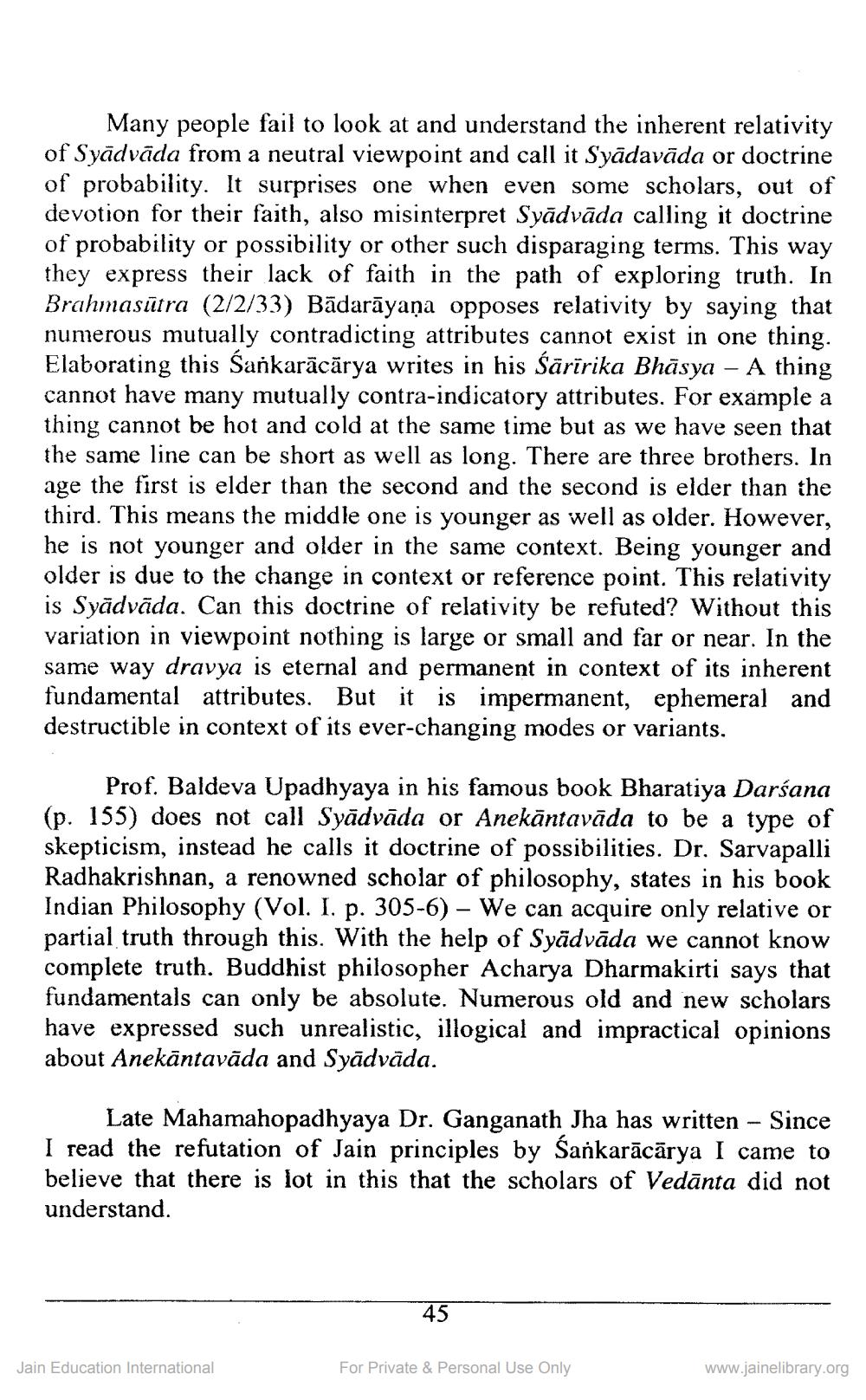________________
Many people fail to look at and understand the inherent relativity of Syādvāda from a neutral viewpoint and call it Syādavāda or doctrine of probability. It surprises one when even some scholars, out of devotion for their faith, also misinterpret Syādvāda calling it doctrine of probability or possibility or other such disparaging terms. This way they express their lack of faith in the path of exploring truth. In Brahmastra (2/2/33) Bādarāyaṇa opposes relativity by saying that numerous mutually contradicting attributes cannot exist in one thing. Elaborating this Sankarācārya writes in his Sārīrika Bhāsya – A thing cannot have many mutually contra-indicatory attributes. For example a thing cannot be hot and cold at the same time but as we have seen that the same line can be short as well as long. There are three brothers. In age the first is elder than the second and the second is elder than the third. This means the middle one is younger as well as older. However, he is not younger and older in the same context. Being younger and older is due to the change in context or reference point. This relativity is Syādvāda. Can this doctrine of relativity be refuted? Without this variation in viewpoint nothing is large or small and far or near. In the same way dravya is eternal and permanent in context of its inherent fundamental attributes. But it is impermanent, ephemeral and destructible in context of its ever-changing modes or variants.
Prof. Baldeva Upadhyaya in his famous book Bharatiya Darśana (p. 155) does not call Syādvāda or Anekāntavāda to be a type of skepticism, instead he calls it doctrine of possibilities. Dr. Sarvapalli Radhakrishnan, a renowned scholar of philosophy, states in his book Indian Philosophy (Vol. I. p. 305-6) - We can acquire only relative or partial truth through this. With the help of Syādvāda we cannot know complete truth. Buddhist philosopher Acharya Dharmakirti says that fundamentals can only be absolute. Numerous old and new scholars have expressed such unrealistic, illogical and impractical opinions about Anekāntavāda and Syādvāda.
Late Mahamahopadhyaya Dr. Ganganath Jha has written - Since I read the refutation of Jain principles by Śankarācārya I came to believe that there is lot in this that the scholars of Vedānta did not understand
45
Jain Education International
For Private & Personal Use Only
www.jainelibrary.org




